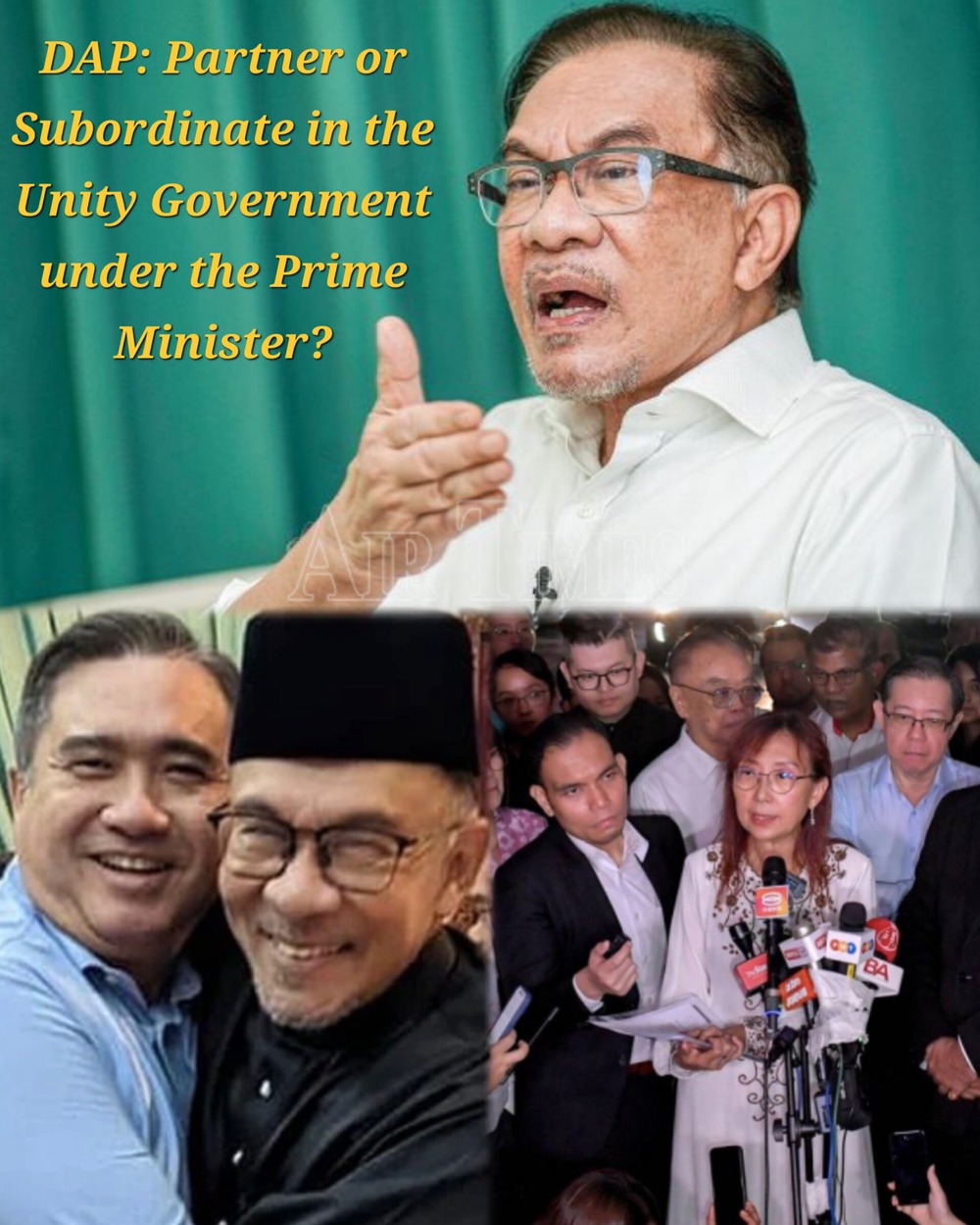
Malaysia's #1 Content Aggregator
27 Sep 2024 • 1:30 PM MYT

Photo Credit: airtimes , dennisignatius , sinardaily
The Democratic Action Party (DAP), once a fierce advocate for minority rights and a champion of multi-racial politics, now faces a challenging reality within the unity government led by Prime Minister Dato' Seri Anwar Ibrahim. Despite holding significant parliamentary strength, DAP's influence seems to be diminishing, raising concerns about its role and relevance in national affairs.
While leaders like Teresa Kok, Kevin Yii, and Lim Lip Eng continue to serve as voices of reason, standing outside formal government positions to speak for checks and balances, the party as a whole appears constrained. These figures provide critical oversight and accountability, ensuring that key issues affecting the rakyat are addressed. However, even these efforts are often overshadowed by DAP’s complex relationship with the Prime Minister and its coalition partners.
Humiliation of Teresa Kok: A Symptom of DAP’s Marginalization
One of the most glaring examples of DAP’s marginalization was the public humiliation of Teresa Kok by none other than Prime Minister Anwar Ibrahim. Kok, who voiced legitimate concerns about issues impacting the people, was publicly scolded by Anwar, a move that not only embarrassed her but sent a chilling message to the entire party. This incident highlights a larger problem within the coalition: DAP is treated more as a subordinate than an equal partner, despite its vital role in the government.
The incident underscores a troubling trend. DAP, which used to pride itself on being a robust voice for justice and equality, now finds itself sidelined. Anwar’s public reprimand of Kok reveals the precarious position DAP holds within the current administration. It raises critical questions about how much input and autonomy the party truly has in influencing the policies and direction of the government.
DAP: Partner or Subordinate?
While DAP is technically a partner in the unity government, its role often feels more ceremonial than substantial. The party’s reluctance to challenge key issues and policies, particularly those that affect its core supporters, has led to growing disillusionment among its base. Once a party that held the ruling government accountable, DAP now seems to be tiptoeing around sensitive issues to avoid conflict with the Prime Minister and other coalition members.
However, to remain relevant with dignity, DAP must not fall into the trap of silence or submission. The party needs to reassert itself as a true advocate for policies that benefit all communities, not just those favored by the ruling government. For DAP to regain respect, it must demonstrate the courage to voice its viewpoints, even if that means standing up to the Prime Minister or other influential figures in the coalition.
The Erosion of DAP’s Political Strength
DAP’s political capital is steadily eroding as its leaders continue to compromise for the sake of coalition stability. The party once vehemently criticized Barisan Nasional (BN) for its treatment of component parties like MCA and MIC, accusing them of being stooges to UMNO. Yet today, DAP finds itself in a similar, no better, position. While it maintains a larger number of parliamentary seats than many of its coalition partners, this strength has not translated into a meaningful say in how the government operates.
The humiliation of Teresa Kok is not an isolated event but rather a reflection of DAP’s diminishing role in national politics. The party’s leaders are now faced with a critical choice: continue to toe the line, risking irrelevance, or reclaim their voice and stand firm in advocating for the rights and dignity of the rakyat.
Can DAP Reclaim Its Voice?
For DAP to stay relevant and maintain the respect of its supporters, it must take decisive action. It can no longer afford to be a silent passenger in the unity government. The party must demand the respect of its coalition partners and assert its role as a key player in shaping the nation’s future.
Ultimately, the future of DAP hinges on its ability to strike a balance between being a cooperative coalition partner and a party that stays true to its core values. If the party fails to stand up for itself and its principles, it risks losing not only its relevance but also the trust and support of its grassroots members. The longer DAP remains passive, the more it will fade into the background, becoming a shadow of the once powerful force it was in Malaysian politics.
By: Kpost
Information Source: FocusMalaysia

No comments:
Post a Comment